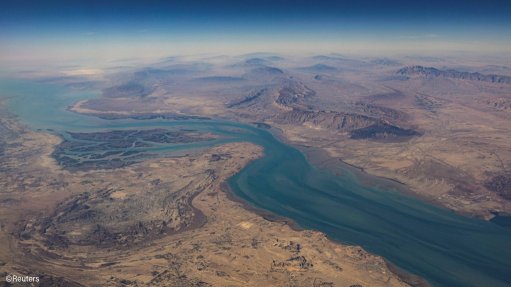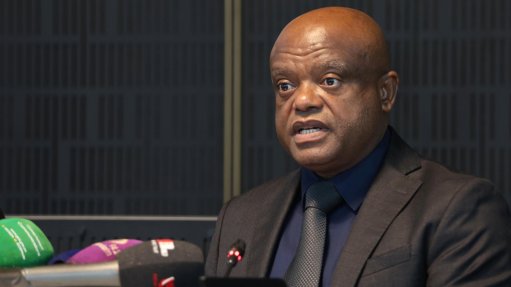On-The-Air (19/02/2021)
This Friday, SAfm’s radio anchor Elvis Preslin spoke to Martin Creamer, publishing editor of Engineering News & Mining Weekly. Reported here is this Friday’s At the Coalface transcript:
Preslin: The world’s biggest coal trader announced this week that it will be depleting and closing its South African coal mines over the next decade-plus.
Creamer: That is a world move. This is Glencore. Glencore is the biggest seaborne coal trader. It has got mines in South Africa and it is planning to close them over the next 10, 15 and 20 years. This is because of the decarbonisation move, which is spreading throughout the world like wild fire, to fight climate change. Nobody wants to burn coal anymore to make electricity.
They want to use the sun, wind and water to make clean electricity. This is something that if you don’t do, and you’re a big company, your shareholders will leave you very fast, as we have seen. All these companies like BHP, Rio Tinto and Anglo American are selling the coal mines. Glencore is saying that they won’t sell their mines, but they will deplete them and then close them. I think that is a better way, because then there is control and then eventually they will close under public scrutiny. Glencore says it will close its mines in South Africa and Colombia first, and then in Australia. In the meantime, South Africa is benefitting hugely from the export of its coal.
It is not short of markets but suddenly a new market has popped up to boost things – the export of South African coal to China, which has traditionally bought its coal from Australia. But because the Australians are having a tick-tack with the Chinese, South Africa is now filling some of the gap left by the Australians, and now we’re selling our coal to China, at good prices, so this is a fantastic short-term benefit for us, but in the long-term that will end, as our major coal mines will be deliberately depleted and then closed.
Preslin: Yet another South African mining company is planning to use hydrogen to power mine fleets.
Creamer: Again, to help to mitigate climate change, mining companies are planning to switch away from petrol and diesel, particularly diesel. They want to use what they call green hydrogen, because that comes with the help of renewable energy, from the sun and the wind. It started with Anglo American in Limpopo. They began building a massive truck that will be fuelled by green hydrogen.
They will get the renewable electricity from the Limpopo province’s hot sun and they will put that electricity through water and get green hydrogen, which will be used as fuel for the truck. Now, Sibanye-Stillwater said yesterday that they are also assessing that, and may do something similar. Sibanye had super-duper results. I mean billions of rands of profits were made by the company and free cash flowed like a river, particularly in the six months to December 31. The financial results were just phenomenal.
These platinum group metal mines are making an absolute fortune at the moment. Because their products, platinum group metals, clean up the air of the world, they also want to spend their money to clean up their own mines, to set a good example. It is seen as hypocritical that they dirty the air above their mines but then use the metals they produce to clean the air above the world’s big cities, by reducing the emissions from vehicle exhausts. Now they want to move in and clean up their own acts, and what they want to use is also green hydrogen to put through hydrogen fuel cells, which, of course, also make use of the platinum group metals that they produce.
Preslin: A Johannesburg company is building equipment to generate hydrogen for use in Africa and Europe.
Creamer: This is a huge advance for South Africa. Right here, in Randburg, just on our doorstep, Hydrox Holdings has popped up and started taking steps to make electrolysers. These are advanced pieces of equipment that turn water into the green hydrogen that everybody is looking for at the moment. The Europeans are strategising to use green hydrogen, the Germans are strategising to use it.
The Germans have already come down here to try and map out where they can get green hydrogen from in Southern Africa. Namibia is looking good, with potential exports out of Walvis Bay and into Rotterdam. The Rotterdam port is already adapting to be able to receive the green hydrogen and put it into Europe. Now, we have got a Randburg firm that has come up with something good. Normally we associate the alkaline electrolysers that the Randburg firm is developing with non-platinum group metals, which is not good for South Africa, because we want to sell our platinum group metals, as the world’s biggest supplier of platinum group metals.
What they are saying in Randburg, is that the Italian firm that is supplying them the electrodes actually has platinum group metals in those electrodes and it says that the benefit is huge using platinum group metals to catalyse water into green hydrogen and oxygen. There is big export potential for the electrolysers that Hydrox is developing. They’re talking about helping other countries in Africa and also in Europe. So hydrogen is on the map at the moment, big time, and green hydrogen in particular, which needs South Africa’s platinum group metals, if not in the electrolysers, then in the fuel cells that are powered by the hydrogen.
Preslin: Thanks very much. Martin Creamer is publishing editor of Engineering News & Mining Weekly.
Article Enquiry
Email Article
Save Article
Feedback
To advertise email advertising@creamermedia.co.za or click here
Announcements
What's On
Subscribe to improve your user experience...
Option 1 (equivalent of R125 a month):
Receive a weekly copy of Creamer Media's Engineering News & Mining Weekly magazine
(print copy for those in South Africa and e-magazine for those outside of South Africa)
Receive daily email newsletters
Access to full search results
Access archive of magazine back copies
Access to Projects in Progress
Access to ONE Research Report of your choice in PDF format
Option 2 (equivalent of R375 a month):
All benefits from Option 1
PLUS
Access to Creamer Media's Research Channel Africa for ALL Research Reports, in PDF format, on various industrial and mining sectors
including Electricity; Water; Energy Transition; Hydrogen; Roads, Rail and Ports; Coal; Gold; Platinum; Battery Metals; etc.
Already a subscriber?
Forgotten your password?
Receive weekly copy of Creamer Media's Engineering News & Mining Weekly magazine (print copy for those in South Africa and e-magazine for those outside of South Africa)
➕
Recieve daily email newsletters
➕
Access to full search results
➕
Access archive of magazine back copies
➕
Access to Projects in Progress
➕
Access to ONE Research Report of your choice in PDF format
RESEARCH CHANNEL AFRICA
R4500 (equivalent of R375 a month)
SUBSCRIBEAll benefits from Option 1
➕
Access to Creamer Media's Research Channel Africa for ALL Research Reports on various industrial and mining sectors, in PDF format, including on:
Electricity
➕
Water
➕
Energy Transition
➕
Hydrogen
➕
Roads, Rail and Ports
➕
Coal
➕
Gold
➕
Platinum
➕
Battery Metals
➕
etc.
Receive all benefits from Option 1 or Option 2 delivered to numerous people at your company
➕
Multiple User names and Passwords for simultaneous log-ins
➕
Intranet integration access to all in your organisation



















